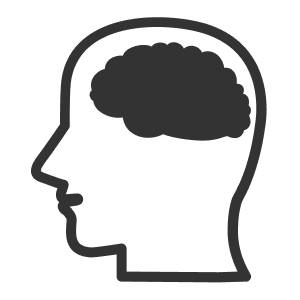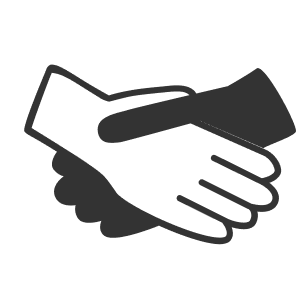Social Network Map of Initiative Gemeinsamkeit
If you are just after the file, you can download it here. The current version is v0.04 thus it is very early stage. It currently works both in English and German.
Wenn du nur an der Datei interessiert bist, kannst du sie hier herunterladen. Die aktuelle Version ist v0.04, also noch in einem sehr frühen Stadium. Sie funktioniert derzeit sowohl auf Englisch als auch auf Deutsch.
Here is the Data capture file:
Here is the Data analysis file:
This concludes the tool.
Network Maps in Sociology
One thing both in the research on social connection and loneliness as well as the self help literature is the use of egocentric network maps.
In sociology there is an entire discipline dedicated to this topic termed social network analysis that spans entire lecture courses, and usually spans the theory coined by Granovetter, Burt, Kilduff and Wellman.
The tools developed in this discipline allow equipped students to both analyse datasets parsed from Facebook, Twitter/X and other social media platforms, as well as directly generated egocentric networks of survey participants.
A variety of tools such as the Network Canvas of Bernie Hogan of Oxford University aims to make the process reasonably digital.
The key benchmark for utilizing good social connection theory with a number of high density personal networks generated in in-depth interviews is employed in the Book „Revisiting Friendships“ by Liz Spencer and Ray Pahl published by Princeton University Press.
Network maps in Self-help
Egocentric friendship network maps or social connection maps are also recommended by a variety of self help books and resources. Thus Adam Poswolsky suggests to „make a work friend map“. The „Social Portfolio Worksheet“ by MIT AgeLab suggests the same.
More indepth is Suzanne Degges-White in describing the components of the „Friendscape“ in the book „Friends Forever“, which in turn is founded of years of research in female friendships.
Other concepts exist and will be referenced here over time.
Social Network Map of Initiative GemEinsamkeit
One thing with the different methodologies is that either the tools or measures are designed for self help, and then do not come with it with appropriate data export capabilities to submit to a central research project, or are designed to fill the data need for a single shot research project designed to answer a specific or a sequence of specific research questions.
What we would like to develop is a mixture of both:
- A tool that brings direct insight and benefit to the user filling it out, giving guidance and advice on what measures might be most beneficial to reduce possible feelings of loneliness or tackle (impending) weaknesses in their current social networks that may lead to future loneliness experiences.
- This tool should not just focus on a few friends, but also look at the more significant weak ties, such as fringe ships, and the participation in communities and thus measure the social embeddedness.
- And a data capture and export and submit capability that allows the personal data to stay fully with the participant, but allows her or him to export an anonymous data summary into a simple file or data format (such as a CSV) and submit it to a central data capture point where over time different samples of ego-centric can be collected and compiled into a central open-science-dataset.
The file hosted here is designed to do precisely that. It should primarily grow into a tool with Excel or the free versions as the main „Platform“. Currently it is more a request for comments.
Secondly, once a certain maturity has been reached and the question focus and composition, phrasing and coding have evolved into a stable basis and consensus, we would start soliciting current users from this version on to submit the extracts of their networks for this research project.
Evaluation
The result of the analysis should then be something like this:
Project document
Here is the Project Plan and Project Design File. Please consult this for further information what is intended with this project, especially if you are a loneliness and social connection researcher.
The goals overall are:
- Tool usable locally by User, no reliance on any platform, thus absolute confidentiality is assured.
- Optional Data extract to central data research project once this commences. Decentral data capture and central upload.
- Report of captured information and aggregation to analysis on loneliness and connection resulting in tailored recommendations on how to improve level of connectedness
- JSON Export of information to submit to an LLM together with tailored prompts to start and structure a conversation with the LLM of the users choice.
Download
The current version of the Data capture workbook can be downloaded here:
Die aktuelle Version der Datei kann hier heruntergeladen werden:
Here is the Data capture file:
Here is the Data analysis file:
This concludes the tool.
Key elements of the data capture file file
- Roster: Name generation, labelling
- Friendship / Tie properties: FEAST+G Model of Tie strength, see lecture slides and speaker notes on the page Lectures
- Social needs and loneliness, including the updated item scale of the workstream of the Lonely-EU project revisiting feelings of loneliness and connection over the coming years (https://absl.io/research-projects/).
- Communities and Social Groups
This relates to the theory of communities and third spaces (see e.g. Block, Oldenburg, Klinenberg) and the social embeddedness - Resources and Habits:
This relates to inhibitors and enablers of connection such as time availability, health and financial resources. Also a list of pro-social or anti-social habits are queried - Some Optional Sheets as proposals to check for life history of connection and loneliness, as well as prior experiences with losses of formerly significant connections
- Data Export for Data Analysis file.
Please note that this is an early draft of how this tool could look like. At the moment it is published for inviting comments and suggestions and criticism from other researchers.
We will notify you once a beta version for public use is released.
 Ressourcen
Ressourcen Ideengeber
Ideengeber Kontaktgelegenheiten
Kontaktgelegenheiten